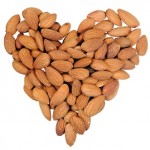Archive for the ‘Health & Wellness’ Category
Eggs and Chocolate
August 17 2012
Three recent food related articles caught our attention this week.
 The first article was about the harmful effect of eating egg yolks; in fact, the researcher “claims the cholesterol found in the yolk is almost as dangerous as smoking.” WOW! That’s bad news for those of us who enjoy eggs on a regular basis.
The first article was about the harmful effect of eating egg yolks; in fact, the researcher “claims the cholesterol found in the yolk is almost as dangerous as smoking.” WOW! That’s bad news for those of us who enjoy eggs on a regular basis.
But then, a second article disputes these claims:
“But Dr. Antonis Zampelos, a professor of human nutrition and the journal’s expert on dietary matters, said Spence should have also tracked the intake of saturated fat, which is a proven cause of coronary disease.
“The results are not as strong as the statement that came out,” said Zampelos.
“The results lack the greatest validity I would say. I’m not saying that this is not an interesting study,” he said. “I’m saying that you can’t really make such a strong statement about smoking.””
So who do we believe? Food science and nutrition is constantly evolving; what is good for us today can be found to be bad for us tomorrow. Food items such as margarine, artificial sweeteners and wheat are either a healthier way to eat or harmful to us depending on whom you believe.
Also this week, researchers found that dark chocolate can help lower you blood pressure. Now this is news I choose to believe.
 Dark Chocolate: A study published in the March 2007 issue of the American Journal of Clinical Nutrition found that of more than 34,000 post-menopausal women who consumed the most flavonoid-rich food, 22 per cent had a lower risk of developing coronary heart disease. Chocolate was ranked as one of the top flavonoid-rich foods associated with a protective effect, along with bran, red wine, grapefruit and strawberries.
Dark Chocolate: A study published in the March 2007 issue of the American Journal of Clinical Nutrition found that of more than 34,000 post-menopausal women who consumed the most flavonoid-rich food, 22 per cent had a lower risk of developing coronary heart disease. Chocolate was ranked as one of the top flavonoid-rich foods associated with a protective effect, along with bran, red wine, grapefruit and strawberries.
These findings support previous research published in 2006 in the Archive of Internal Medicine, which found men who consumed high amounts of cocoa products (2.3 grams or more per day) had a 50% lower risk of developing cardiovascular disease, compared with men with the lowest consumption.
A study two years earlier, published in the journal Hypertension, uncovered similar findings using more chocolate. Researchers randomly assigned 20 subjects with high blood pressure to receive either 100 grams a day of flavonoid-rich dark chocolate or 90 grams per day of flavonoid-free white chocolate. The group receiving dark chocolate experienced a drop in blood pressure. Researchers also found that levels of LDL cholesterol dropped by 10 % in the dark chocolate group.
Your heart health isn’t the only thing with a link to chocolate. A 2007 study published in the European Journal of Clinical Nutrition found that men who preferred chocolate to other types of candy had a lower body mass index and waist circumference than men who did not eat chocolate. Chocolate lovers also experienced more feelings of happiness and better psychological well-being.
Whomever you choose to believe, eating foods, be it eggs or chocolate, moderation is the key. There is such a thing as too much chocolate.
AHWW Nuts!
July 26 2012
Did you know that eating almonds can lower you LDL and reduce your risk of heart disease?
It’s true. Did you know that they can also help you lose weight? Yes, true again. Substituting almonds for less healthy foods can have the duel effect of lowering your risk of heart disease and helping you lose weight.
 Almonds are incredibly versatile as well. Eaten whole, they’re great as a snack; they’re wonderful in salads and cereals; and great in baked goods and breads. Did I mention they taste wonderful too? Next time you’re reaching for a bag of chips or a chocolate bar as a snack, try a handful of almonds instead, they’ll fill you up, they taste great and they’re good for you!
Almonds are incredibly versatile as well. Eaten whole, they’re great as a snack; they’re wonderful in salads and cereals; and great in baked goods and breads. Did I mention they taste wonderful too? Next time you’re reaching for a bag of chips or a chocolate bar as a snack, try a handful of almonds instead, they’ll fill you up, they taste great and they’re good for you!
Here are some facts about almonds:
Almonds are a great source of vitamin E, with 25g providing 70 percent of the recommended daily allowance. They also have good amounts of magnesium, potassium, zinc, iron, fiber and are a good source of healthy monounsaturated fat. They contain more calcium than any other nut which makes them great for vegetarians who do not eat any dairy products.
They also contain amygdalin, also known as laetrile or vitamin B17, the anti-cancer nutrient. Almonds also contain several phytochemicals which are thought to contribute to a healthy heart. A handful of almonds a day help reduce the risk of heart disease by lowering ‘bad’ blood cholesterol (LDL) by as much as ten percent.
Almonds are high in monounsaturated fat, a key fat found in many Mediterranean diets, and which gives them much greater benefits than simply being cholesterol-lowering. Nearly every research study shows those who eat a traditional Mediterranean diet not only have a lower risk of heart disease and cancer, they also live longer.
For many years almonds were considered ‘fattening’. However, studies have shown that those who ate the most nuts tended to have lower body mass indexes. Although almonds are high in fat and calories, eating them in moderation can actually help with weight loss.
Almonds are high in protein, around 18 percent, and contain virtually no carbohydrates, they are ideal for diabetics, pre-diabetics or anyone with blood sugar issues.
In traditional Chinese medicine, almonds are considered anti-inflammatory, anti-spasmodic and are used as a tonic. They are also known as brain and bone food, probably due to their high calcium content.
Check out MealEasy.com for many interesting recipes and meals using almonds.
In Praise of Slowness
May 30 2012

Did you know that you are three times as likely to be overweight if you eat too fast? Eating in a hurry has been proven to lead to all kinds of health issues as well as weight gain. Conversely, the slower you eat the fewer calories you ingest.
Eating quickly is a tough habit to break. I know because for years I was a speed eater. Working in restaurants you regularly scarf down as much as quickly as you can because you’re never sure when you’ll get a break to eat again. And, as a kid, I couldn’t wait to get outside to play so eating fast was a bad habit I grew up with.
There are steps you can take to slow down your eating habits and by extension prevent unwanted weight gain:
• Don’t wait too long between meals/snacks Try not to go more than 3 to 4 hours without eating something. Try snacks such as yogurt or fruit between main meals.
• Drink more water Have a glass of water before and during each meal; this will help you fill up your belly. Also, having a sip of water between bites will help you slow down your eating habits.
• Cut your food into smaller bites and chew chew chew Smaller pieces of food chewed thoroughly will again help with slowing down. One study showed weight loss success by chewing 20 to 30 times before the next bite. Also, chewing food thoroughly leads to better digestion as well.
• Know when to stop This is the hardest part, especially when what you’re eating is really yummy. The trick is to stop eating before you fell full. This will take some practice but learning when to stop eating is the most important thing when it comes to weight loss.
• Portion control We preach about this one a lot at MealEasy because we believe it is one of the most important and easiest ways to not overeat and therefore lose weight. Stick to your portion size.
